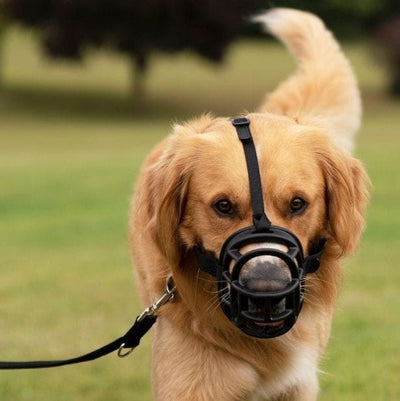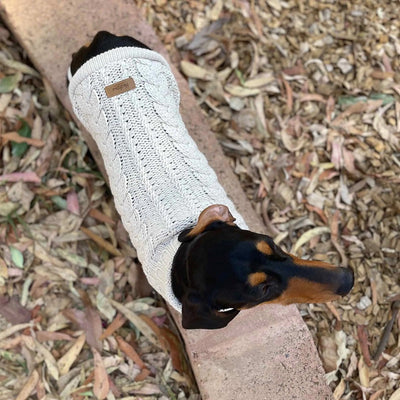
Obesity in dogs can be a serious problem, leading to numerous health issues such as hip dysplasia and diabetes. Knowing which breeds are prone to becoming overweight and the associated risks, can help pet owners prevent their furry friends from facing a lifetime of medical problems linked to excess weight.
Identify Your Dog’s Breed-Specific Risk Factors.
Every breed of dog is equipped to carry a certain amount of body fat, and this percentage varies depending on genetic predisposition. Some breeds are known to be more prone to obesity than others due to their size, metabolism, or physical makeup. It’s important to identify your dog’s breed-specific risk factors in order to recognize potential health issues related to weight gain early on, and help keep them at a healthy weight throughout their lifetime.
What Causes Obesity in Dogs
A dog can become overweight if they eat too much or if they don't get enough exercise. It all boils down to the balance of calories consumed and burned off. In other words, a pets weight depends on how well their diet is regulated and how active they are. Breeds such as Labradors, Dachshunds, Basset Hounds, French Bulldogs, Cocker Spaniels and Shar Pei are particularly vulnerable to becoming obese due to their genetics or predispositions towards inactivity.
What Dog breeds are More Prone to Obesity Than Others?
With obesity being a major health concern in dogs, it’s important to pay attention to which breeds are more prone to putting on extra kilos. According to the Journal of Veterinary Internal Medicine study from 2018, 12 dog breeds had a greater risk of becoming obese, significantly shortening their life spans by up to two and a half years. This study purely looked at the effects of being overweight in regards to middle age on the life span of neutered dogs.
Certain breeds of dogs appear to be more susceptible to weight gain, including:
- Beagles
- Cocker Spaniels
- Basset Hounds
- Labrador Retrievers
- Golden Retrievers
- Shetland Sheepdogs
- Yorkshire Terrriers
- English Mastiff
Different dog breeds are genetically predisposed to different weights, making some more prone to obesity than others. For example, while an average Yorkshire Terrier usually weighs around 3 kg, the English mastiff will grow to be over 91 kg. Aside from genetics, lack of exercise and an unhealthy diet can all contribute to these breeds becoming obese.
Aside from Genetics, What Other Factors Impact Weight Gain in Dogs?
The Journal of Small Animal Practice recently published an article about the prevalence and predisposition for obesity in different dog breeds. According to their study, Labrador Retrievers, Cocker Spaniels, Bulldogs, Newfoundlands and Beagles are among the breeds most likely to become overweight or obese due to their genetic make-up.
Other factors associated with a higher risk of obesity include size, gender, life stage and neutering status.
These breeds tend to eat more food than other breeds and have a genetic predisposition towards weight gain.
Educate Yourself on the Nutritional Needs of Different Breeds.
Knowing the nutritional needs of different breeds is key when it comes to helping your pup avoid excessive weight gain. For example, smaller breeds require more calories than larger breeds do, because they have a much higher metabolism. Additionally, certain breeds are prone to specific health issues that can be exacerbated by carrying too much weight- for example, pugs tend to overheat more easily than other dogs, so maintaining a healthy weight is important for keeping their core body temperature down in hot weather.
Utilise Feeding Schedules and Portion Control Tools.
Feeding your pup the right amount of food at regular intervals is important for both their health and overall well-being. Investing in a portion control scoop or automated feeder can help ensure that your pup is not overfed, while following feeding schedules can also be beneficial as they create structure and consistency around meal times.
Additionally, it’s important to factor in snacks and treats into their daily calorie intake so that you can keep track of how much extra food they’re getting throughout the day.
Make Sure You are Providing Enough Exercise to Keep Fido Fit.
Exercise is a crucial part of maintaining a healthy weight for both humans and animals. Regular exercise helps burn extra calories and keeps your pup’s body fit, relaxed and even encourages stronger mental health. Make sure to set aside enough time in the day to take your pup on a few walks or visits to the dog park as this will not only help keep their weight down but can also stave off boredom. Additionally, regular playdates can help provide an outlet for active dogs that need physical activity on an ongoing basis.
Rely on Professional Advice to Make Dietary Adjustments as Needed.
Veterinarians agree that obesity substantially increases a dog's risk of many serious health issues, including heart disease, diabetes, high blood pressure, and joint problems.
Dietary adjustments may be necessary for dogs that are overweight or obese. There is a range of specialised dog foods available for weight maintenance, but it’s best to get advice from your veterinarian before introducing these into your pet’s diet. Additionally, certain breeds may be prone to obesity-related health issues and require even more specific nutritional support. Your vet can help you understand how to best adjust your dog’s diet in order to effectively manage their weight.
© weknowpets 2023








